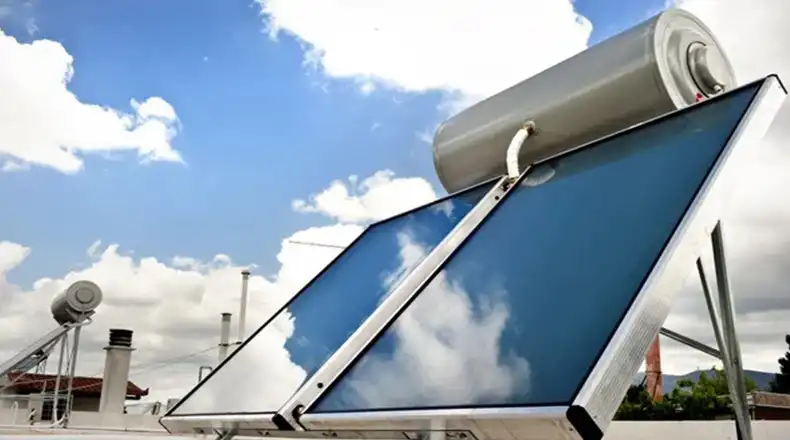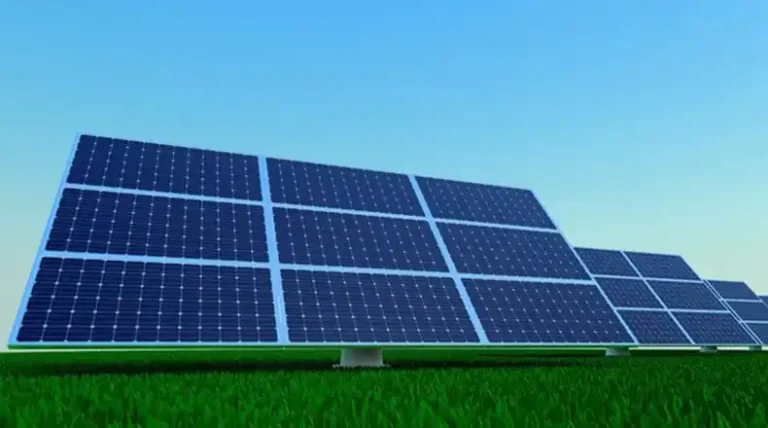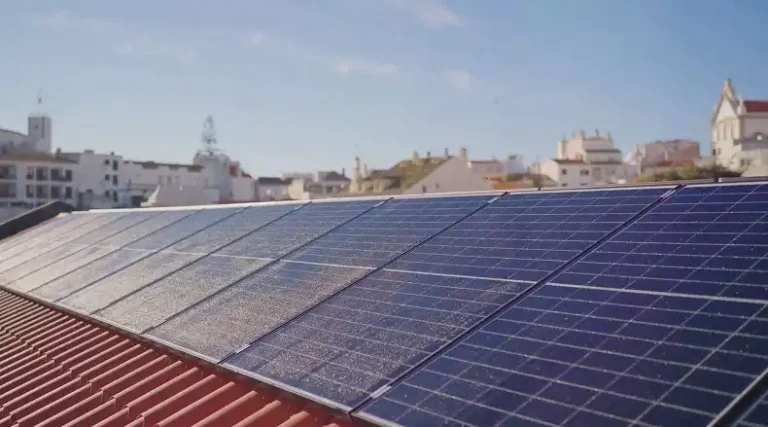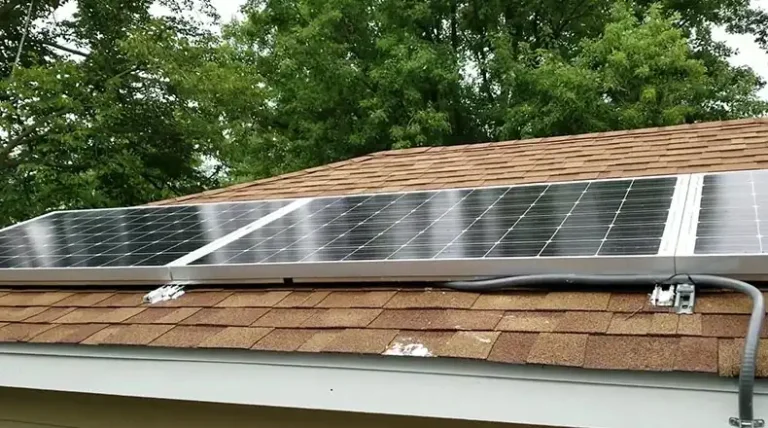Do Solar Water Heaters Qualify for Tax Credit? Is It Possible?
If you’ve been thinking about installing a solar water heater in your home, you may be wondering if you can get a tax credit or rebate to help offset the cost. The answer is yes – solar water heaters do qualify for a federal tax credit under certain conditions.
In this article, I’ll break down exactly how the federal solar tax credit works, the eligibility requirements your solar water heating system must meet, how much credit you can get, and how to go about claiming it on your taxes. Read on to learn everything you need to know to take advantage of this money-saving opportunity!

Eligibility Requirements for the Tax Credit for Your Solar Water Heaters
The tax credit that solar water heaters qualify for is called the Residential Clean Energy Credit. It’s a federal income tax credit that applies to installations of renewable energy systems in homes located in the United States.
For your solar water heater to be eligible, it must meet the following key requirements:
Solar Energy Source
This one is straightforward – the system must use solar energy as the source for heating the water. At least 50% of the energy used by the solar water heating system must come from the sun. As long as it’s solar-powered, it will meet this requirement.
Certification
The solar water heater must be certified by the Solar Rating and Certification Corporation (SRCC) or an equivalent certification body approved by the state where the system is installed. The SRCC certification confirms that the system meets minimum standards for safety, durability, and performance.
Usage Restrictions
No pool parties fueled by solar water, folks! The credit only applies to solar water heaters that provide hot water for your home’s main water supply, not your backyard oasis.
The heated water generated by the solar water heating system must be used inside the home. It cannot be used for heating pools, hot tubs, or any other external application – it must be for domestic use within the dwelling.
Installation Location
The solar water heater can be installed on either your main home or a secondary home (vacation property, etc). However, it must be located in and provide hot water to a residence in the United States to qualify for the tax credit.
Date of Installation
Here is a key detail – the installation date of the solar hot water system determines the credit amount available. Systems installed between January 1, 2022, and December 31, 2032, are eligible for a full 30% credit.
If your installation occurs outside that window, the credit value may be lower depending on the phase-down schedule (more details below).
Qualified homes
A manufactured home that conforms to Federal Manufactured Home Construction and Safety Standards, a condominium, a cooperative apartment, a mobile home, a houseboat, and a house are all examples of residential real property that may qualify for the energy efficient home credit if they meet certain requirements.
Now let’s look at how much credit you can get!
Credit Amount and Timeline
If your solar water heating system is installed between 2022 and 2032, it is eligible for a 30% federal tax credit. This credit will reduce your federal income tax bill by 30% of the total cost of the system, including installation/labor costs.
For example, if you install a system that costs $6,000 total, your tax credit would be 30% of $6,000, or $1,800. That’s a nice chunk of change back in your pocket!
The credit applies to the tax year when your solar water heater was installed, so make sure to claim it when you file taxes for that year. And it reduces your income tax bill directly – $1 of credit saves you $1 in taxes.
Recent Changes to Tax Credits
The Inflation Reduction Act of 2022 extended and even expanded the tax credit for solar water heaters, so you can breathe easy knowing this sunshine-powered incentive isn’t about to disappear. Here is a table that will help you to find how much tax credit you can get for your solar heater.
| Property Placed in Service | Tax Credit % |
| After 12/31/2016 and before 1/1/2020 | 30% |
| After 12/31/2019 and before 1/1/2022 | 26% |
| After 12/31/2021 and before 1/1/2033 | 30% |
| After 12/31/2032 and before 1/1/2034 | 26% |
| After 12/31/2033 and before 1/1/2035 | 22% |
The Inflation Reduction Act recently expanded the solar Investment Tax Credit (ITC) to include battery storage. For home and commercial solar panel installations completed before the end of 2032, the ITC provides a 30% tax credit based on the total installation costs. The credit will then step down – to 26% in 2033 and 22% in 2034. After 2034, the residential solar ITC will be eliminated, while commercial solar will remain eligible for a 10% credit. By expanding the ITC to storage, the Inflation Reduction Act makes it more affordable for homeowners and businesses to install complete solar plus storage systems through 2032.
So in summary, the recent policy changes made the solar tax credit even bigger and better!
How to Claim the Solar Tax Credit
Claiming the tax credit is straightforward when you file your federal tax return for the year when the solar water heater was installed:
First, be sure to hold on tight to any receipts related to the purchase and installation of your new solar water heating system. These records will serve as critical documentation when claiming the credit.
Next, get cozy with Form 5695 – the IRS form specifically for residential energy credits. Fill it out accurately, clearly indicating expenses associated with your eligible solar water heater. Feel free to highlight or underline them for emphasis! [Note – if you are planning for the commercial tax credit for the solar water heaters, then you will require 3468]
Don’t forget to attach copies of your receipts and SRCC certification to Form 5695 before sending it off. These are essential to validate the credit. You can staple or paperclip them to the form so they don’t get misplaced.
Finally, submit Form 5695 along with your regular tax return paperwork. Then kick back and envision how your tax refund will soon be reenergized thanks to embracing this sun-fueled credit.
If you use a tax preparer, provide them with the documents and information and they can help ensure the credit is claimed properly.
The process is simple, but the savings from this generous federal tax credit are significant. And the icing on the cake is that you’ll also reap ongoing utility bill reductions from your new solar water heater!
Ending Thoughts
Installing a solar water heating system can be a big investment, but the sizable federal tax credit makes it much more affordable. If you meet all the eligibility conditions outlined above, you can get back 30% of the total system and installation costs. That can amount to thousands in savings!
Just be sure to claim the credit for the tax year when the system was installed by filing IRS Form 5695. With the recent boost from 26% to 30%, there’s never been a better time to go solar.
I hope this overview gave you a clear understanding of solar water heater tax credits. Please let me know in the comments if you have any other questions! Thanks for reading.





![Do Solar Roof Vents Work At Night [Answerd]](https://www.itekenergy.com/wp-content/uploads/2024/04/Do-Solar-Roof-Vents-Work-At-Night-768x428.webp)
